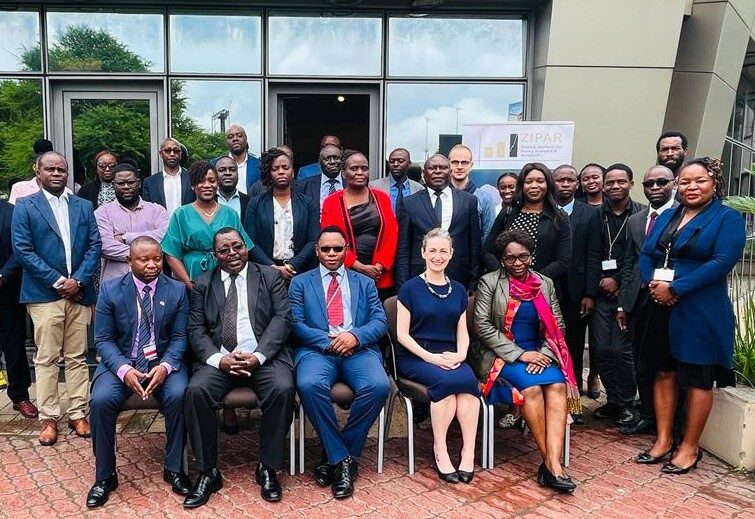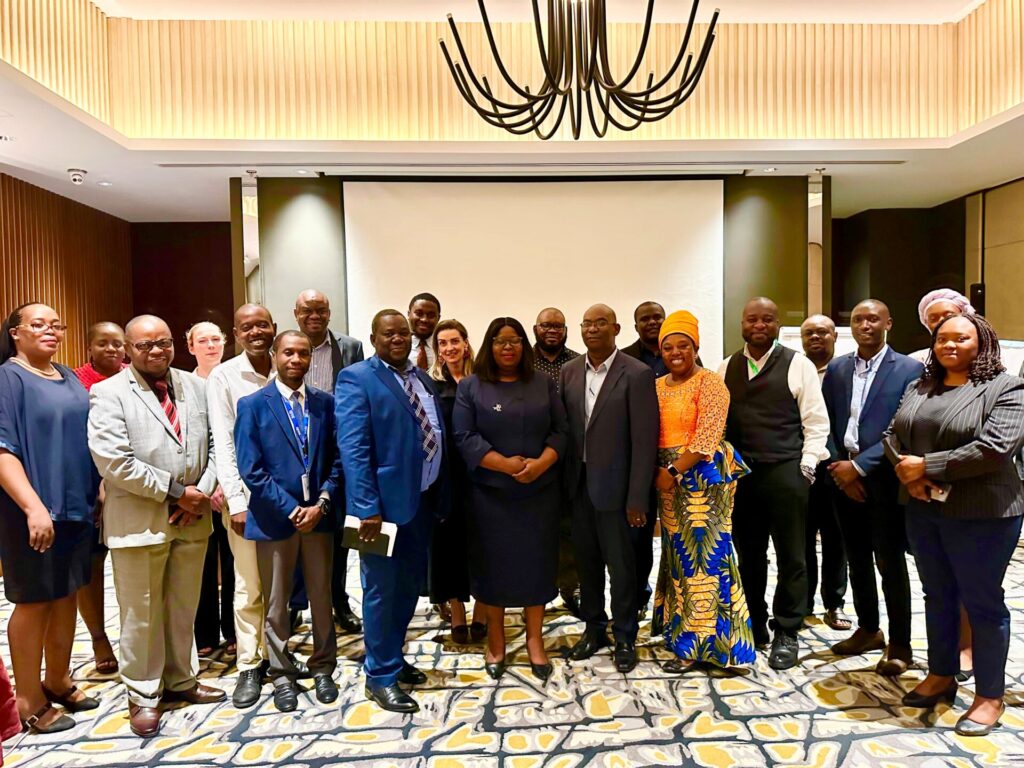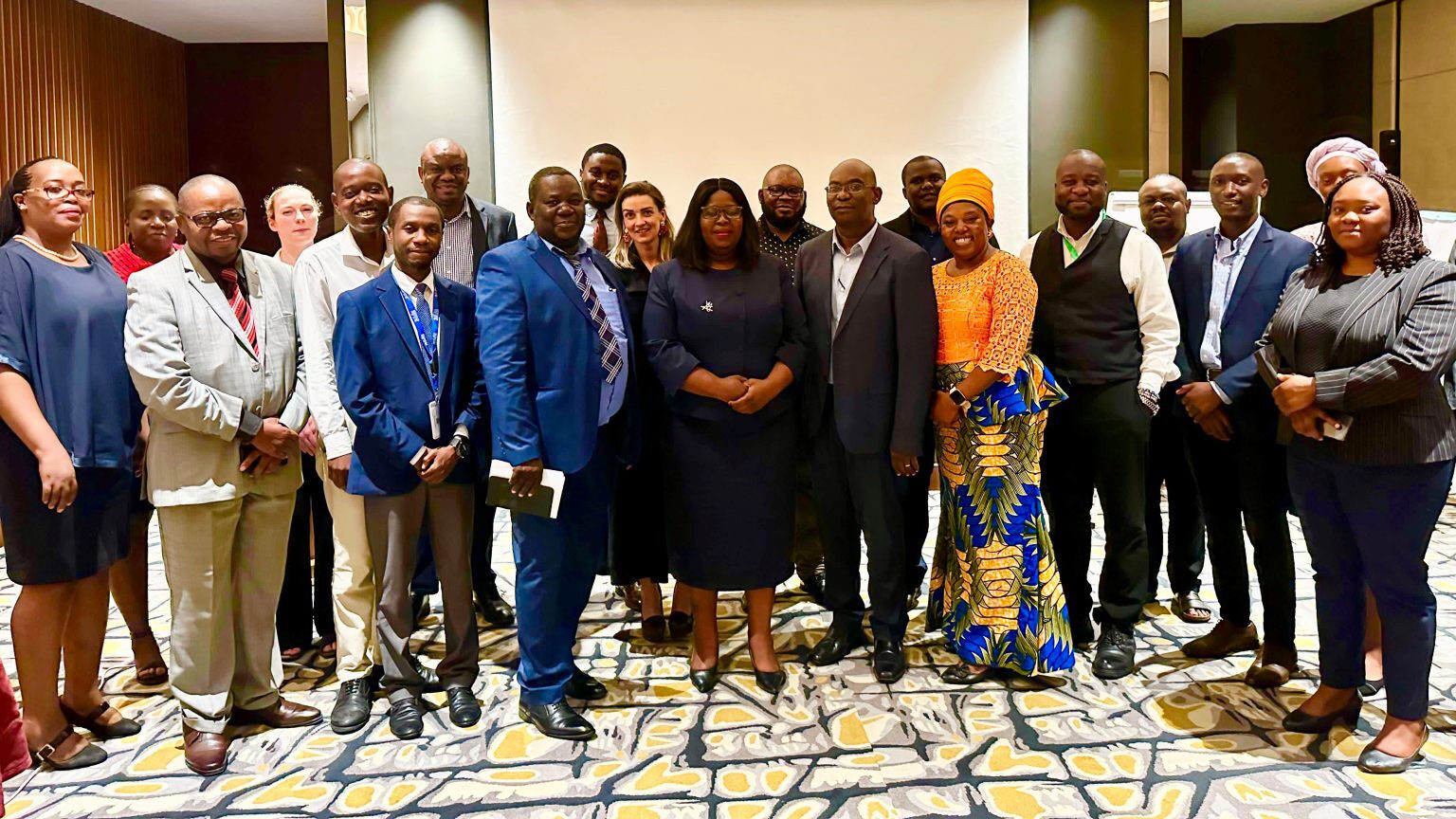
The Governance and Equity Research Community explores how low- and middle-income countries (LMICs) can achieve inclusive, equitable, and climate-compatible transitions in energy and transport systems. These countries face urgent climate risks, yet often lack the institutional capacity and resources needed to build resilient, low-carbon infrastructure, enabled by appropriate policy and governance mechanisms.
Our research focuses on understanding and addressing the complex political, economic, and social factors that shape these transitions to support decision-making processes. We work closely with local partners to co-develop solutions grounded in real-world contexts, ensuring that strategies are locally relevant and socially just.
Our work focuses on three interlinked themes.
Affordable, equitable and sustainable energy access and planning
This thematic area is all about people, policy and planning. We examine how energy access affects people, how they should be meaningfully included in energy access planning and policy, and how planning decisions – such as where infrastructure is designed or located – and related policies shape local communities, economies, and broader development outcomes.
Our key goals are to expand access, advance justice in energy planning, and strengthen domestic agency and capacity.
Energy access is not just about infrastructure. It should be viewed as part of a bigger picture, considering the wider socio-economic dimensions such as affordability, reliability and equity. This allows us to inform energy decision-making that accounts for both infrastructure constraints and broader development objectives.
Using mixed-methods approaches we consider how policy, people and planning interact across scales – from international to national and local – to drive inclusive energy access outcomes. We engage with diverse stakeholder networks including academic institutions, national governments, civil society, local traditional leaders, and communities.
Spotlights
Decentralisation
We are supporting the transition to devolved energy planning, which better accounts for local needs and can promote inclusive, appropriate access.
In Kenya, we have contributed to the development of frameworks to incorporate county-level plans into national-level plans in an inclusive way, and have looked at energy access in different settings.
● We mapped how data for energy planning flows between national and subnational level to facilitate energy planning.
● We investigated how Gender Equality and Social Inclusion, and climate adaptation can be accounted for in County Energy Plans, and identified the minimum data requirements to do so.
● We work with diverse stakeholders to understand energy access in informal settlements using energy models, system dynamics and participatory methods.
● We designed a mechanism for county energy plans to be aggregated into an actionable national-level plan.
Key stakeholders for this work include the ministry of energy, county energy directors, civil society organisations, the energy utility, local communities and development programmes.
In Zambia, we are supporting the government’s efforts to devolve the energy sector, bringing decision-making closer to communities and strengthening local capacity.
● We worked with the Decentralisation Secretariat and the Ministry of Energy to develop national guidelines for devolving the energy sector to the county level.
● We piloted guidelines in one district, where we conducted a baseline assessment of energy service needs, developed a district-level energy plan integrated into the development plan. This was achieved through the appointment of district energy planners and ward development committee leaders to inform a national rollout.
Key stakeholders in this work include traditional leaders, the Decentralisation Secretariat, the Ministry of Energy, local governments, and communities.

Justice and Energy Transition Planning (JaETP)
In Ghana and Kenya, we are investigating the extent to which justice perspectives are, and can be, incorporated in developing energy transition plans, and establishing climate compatible energy infrastructure. This project also examines how international and national collaborations shape energy transition planning. We are conducting interviews with key stakeholders, ranging from civil society to community and government officials, to understand how international notions of energy transition planning and pathways are filtered through domestic decision-making processes in a way that enhances or inhibits just transitions. The key questions underpinning this project are:
● How are justice perspectives considered in planning energy transitions and establishing climate conscious energy infrastructures?
● How do transnational actors shape energy transition planning in Africa, and how are these plans integrated into broader development agendas?
● How can energy transitions be planned in a way that is contextually relevant whilst enhancing domestic agency?
In this project, we work with the Brew Hammond Energy Centre at KNUST, Ghana.
Grounded AI-Enhanced Energy Demand Estimation
We are pioneering new ways to predict latent energy demands. This research combines user-perceived values with artificial intelligence methods to predict the uptake of diverse energy services – from lighting and cooking to solar irrigation and cooling – using scalable demographic and geospatial data.
Through perception-based surveys and predictive models, we capture what energy services people need and why—helping ensure that energy interventions are targeted where they can have the greatest impact. By targeting energy services to match local needs, values, and context, their likelihood of uptake and benefit is increased.
We work to reveal underserved communities and pockets of vulnerability that traditional planning often misses. This approach brings local values directly into system planning, enabling more equitable and efficient energy investments. The result is smarter, demand-driven energy planning that accelerates inclusive access and strengthens resilience. This work is supported by both CCG and a Schmidt AI in Science fellowship.
Supporting an inclusive ecosystem for green growth
The transition to a low-carbon future requires rapid deployment of technologies, significant financial investment, and increased use of natural resources, such as minerals, land and water. This transition will have far-reaching impacts for society, economies, and ecosystems.
In this thematic area, we explore how this transition can be achieved in a manner that is inclusive, equitable, and leaves no one behind. Specifically we:
We adopt a systems perspective that connects different sectors, policy domains, and stakeholders, paying particular attention to the needs of marginalised and vulnerable communities. We are also committed to demand-led research, collaborating with our in-country partners to ensure our work is stakeholder-driven and locally relevant.
Spotlights
Critical Minerals
As the global demand for critical minerals increases, resource-rich LMICs must also share in the benefits, through strengthened economies, thriving communities, and protected environments. Our work supports these efforts by examining the interconnected socioeconomic, environmental, and policy dimensions of the critical minerals landscape
In Zambia, we have evaluated the mining sector at various scales and stages of the value chain to inform policymaking and support sustainable and equitable resource extraction.
● We explored Zambia’s artisanal and small-scale mining (ASM) sector, mapping its current policies to the Sustainable Development Goals to illustrate the sector’s potential contributions to national development, as well as highlighting policy gaps.
● We worked with local partner Green Earth Solutions to explore the potential opportunities and challenges of greater in-country value addition in Zambia’s mining value chain.
● We conducted workshops and interviews to understand the intersection between critical minerals mining and land-use governance.
● We are examining the role of women in mining, conducting a situational analysis and identifying pathways to support their increased inclusion in the sector.
Key stakeholders for this work include the Ministry of Mines, miners, civil society organisations, and technical experts.
In Ghana, we have also investigated national strategies to leverage demand for critical minerals, focusing on community rights, value addition, and revenue structures.

Land-use
Understanding land-use change is essential for climate-compatible growth, as it directly influences greenhouse gas emissions, ecosystem services, and the resilience of communities to climate impacts. Our work helps integrate land-use considerations and strategic land management into policy and planning. In doing so, governments and stakeholders can better align economic development with environmental sustainability, ensuring that growth trajectories are both climate-resilient and socially inclusive.
In Zambia, CCG researchers have:
● Examined interconnections between the drivers of land-use change – including fuel production, expansion of agriculture, mining and infrastructure, climate change and ecosystem restoration efforts.
● Used a conceptual model and open-source Excel tool to facilitate stakeholder dialogues to improve policy coherence regarding land (see pre-print), while stakeholder-informed research provides insights on critical links between climate, land, energy and water (working paper).
● Investigated land governance processes for renewable energy and carbon market projects.
Levelised production cost for green commodities (Geo-X)
Effective decarbonisation depends on balancing technical and socioeconomic aspects with natural resource potential (eg solar irradiance, wind speed, hydrology) and locational conditions. CCG researchers have developed a GIS-based tool to assess locational levelised production costs for green commodities, with a focus on green hydrogen and ammonia. The python-based tool is publicly available (see online repository) and designed for ease of use from the user point of view. Current applications include a quantitative analysis of the cost needed to deploy the ammonia industry in Africa to supply the continental fertiliser demand considering different demand scenarios.
Energy-enabled resilience and adaptation
Energy enabled resilience and adaptation
Resilience is an increasingly important piece of the puzzle to help socio-economic development in the face of climate shocks and global warming. However, it is commonly thought of in terms of physical infrastructure. This research therefore endeavours to better understand social and community resilience as well understanding the impact of physical infrastructure on the same. Resilience is a summation of an individual’s absorptive, adaptative and transformative capacities, which can be represented by indicators, for example, access to basic services, diversification of income sources and household size.
Given the essential role of energy in enabling resilience and climate adaptation, the key goal of this thematic area is to understand how to integrate these factors into energy planning. This includes identifying what resilience and adaptation measures are required by different demographic groups and in different contexts, projecting the energy demand of such measures and factoring the increasing energy demand into energy planning but also to understand the impact of energy and transport infrastructure.
Spotlights:
Minimum Data Requirements to Account for Resilience and Adaptation in Energy Planning
Building resilience and climate adaptation will increase energy demand – consider, for example, cooling and refrigeration, solar powered irrigation and early warning systems. At a sub-national level, the required resilience and adaptation measures can be identified by collecting household survey data.
However, data collection is timely and expensive, especially for resource constrained local authorities. This research aimed to identify the minimum data requirements to account for resilience and adaptation through systematic literature review and participatory stakeholder workshops with country-level energy planners in Kenya.

Energy Access Underpins Climate Adaptation
Access to energy, for both electricity and clean cooking, plays a crucial role in enabling climate adaptation in sub-Saharan Africa. However, the topics of energy access and adaptation have been siloed to date. A more explicit recognition of the intertwined nature of these areas could help disburse adaptation finance and catalyse sustainable development.
Mapping Resilience to the Sustainable Development Goals
With multiple, intersecting shocks – climate, geographical and political – all dimensions of resilience are becoming increasingly important. This work maps the overlap between indicators of resilience and indicators of sustainable development, disaggregating the analysis into different climate shocks, regions and countries. The results of this mapping can be used to inform the SDGs beyond 2030.
How We Work
Our research is rooted in equitable partnerships and is typically case study-driven. We use a diverse, interdisciplinary toolkit to explore the political, economic, and social dimensions of equitable low-carbon transitions. Our goal is to create practical, inclusive strategies that promote fair outcomes for communities—now and into the future.
Specific research methods include:
Political and Institutional Analysis
● Political Economy Analysis: Assesses governance structures, power dynamics, and stakeholder interests to identify challenges and opportunities for just transitions.
● Policy and Institutional Analysis: Reviews and evaluates policies, strategies, and institutional reforms that influence climate-compatible development.
● Stakeholder Mapping: Identifies key actors and analyses their influence, interests, and relationships in decision-making processes.
Participatory and Social Research Methods
Includes interviews, surveys, focus groups, workshops, and co-production approaches to integrate community perspectives.
● User-Perceived Value (UPV): Captures what communities value through visual and narrative methods.
● Social Return on Investment (SROI): Quantifies social, environmental, and economic benefits using stakeholder-defined outcomes.
● Participatory system dynamics
Contextual and Case-Based Research
● Case Study Analysis: Provides deep, context-specific insights into energy and transport transitions.
● Scenario Approaches: Co-creates visions and futures, and identifies synergies and trade-offs for system planning at different scales.
Spatial and Economic Modelling
● Spatial Techno-Economic Modelling (Geo-X Framework): Uses geospatial and economic data to optimize renewable energy and industrial site selection embedded in local contexts (eg GeoH2 for hydrogen, Geo-MinX for copper processing).
● Risk Assessment: Models investment and trade competitiveness scenarios, while also assessing neocolonial risks and structural vulnerabilities.
Data Infrastructure and Governance
● Data Governance Analysis: Models investment and trade competitiveness scenarios, while also assessing neocolonial risks and structural vulnerabilities.
Transforming Research into Art: Smoke Jumpers
On 19 May 2023 Art & Science Films Afrika’s extraordinary film ‘Smoke Jumpers’ had its premier. It was inspired by research undertaken by CCG’s Rebecca Clube on traditional cooking materials (charcoal). It brings Kenyan spiritual rituals together with the contradictions and threats to women of charcoal burning and climate change. Commissioned by Invisible Dust www.invisibledust.com and UCL, it was funded by the Climate Compatible Growth programme.
Governance and Equity Research Community


Prof. Stephanie Hirmer
Research Chair + Equity and Governance Community Co-Lead
University of Oxford









Key Partners
- CIGZ
- EED
- Lloyds Financial
- UNZA
- KNUST
- Nuvoni
- ZIPAR
- Centre for Environmental Justice
| Title | Type | Countries | Authors |
|---|
